If you have been using or considering insulin therapy for your type 2 diabetes, you may have experienced sentiments of remorse or hopelessness, because you think the fact that you have to use insulin constitutes some kind of failure. Don’t. And here is why.
Diabetes is a condition of insulin deficiency and it is progressive. It is expected that over time you will gradually lose your own insulin secretion and, typically toward the second decade of your disease, you will need insulin injections. It is not because you did anything wrong; it is what we expect to happen. Over time, people with type 2 diabetes need additional medications to maintain good glucose levels and a healthy HbA1c.
Contrary to what you may have heard: Insulin therapy does not cause cancer, heart attacks or other conditions. The only potential side effect is hypoglycemia, which is when your glucose becomes too low.
Insulin needs are individual. Some need less than about 50 units per day, while others need more than 500. This is mainly dependent on the number of units your pancreas used to secrete before it quit. Since it takes time for the pancreas to lose its insulin-secreting capability, you may find that doses increase during the first several years after you start insulin therapy.
Some people tend to gain weight when they begin insulin therapy, but not because of the insulin itself. When you are insulin deficient and your glucose is high, large amount of glucose together with large amount of calories, leave your body through the kidneys. ‘Fixing’ the insulin deficiency problem will stop the loss of glucose through your kidneys which could result in retaining the calories and gaining weight. The higher the HbA1c before you start insulin therapy, the higher the chances you’ll gain weight.
Importantly, even if you gain weight with insulin therapy, your highest priority is still to optimize glucose levels and HbA1c to prevent complications.
It is not easy to achieve a healthy glucose control with insulin therapy, which is neither your fault nor your physician’s. Insulin requirements are dynamic. Compared to most other drugs, insulin needs do not have a steady state. Your needs are expected to change over time in an unpredictable way. Sometimes you will need more and sometimes less, which means that your doses will need to be frequently updated.
Stay safe,
Israel.
About Dr. Israel Hodish
Dr. Israel Hodish, MD, PhD, is the clinical research lead for Hygieia, the makers of the d-Nav Insulin Management Program. An endocrinologist and associate professor in the department of Internal Medicine at the division of Metabolism, Endocrinology and Diabetes of the University of Michigan Medical School, Dr. Hodish’s clinical and research interests are to advance the management of patients with adult-onset diabetes. Israel Hodish co-founded Hygieia in 2008 to develop the d-Nav Insulin Management Program.


